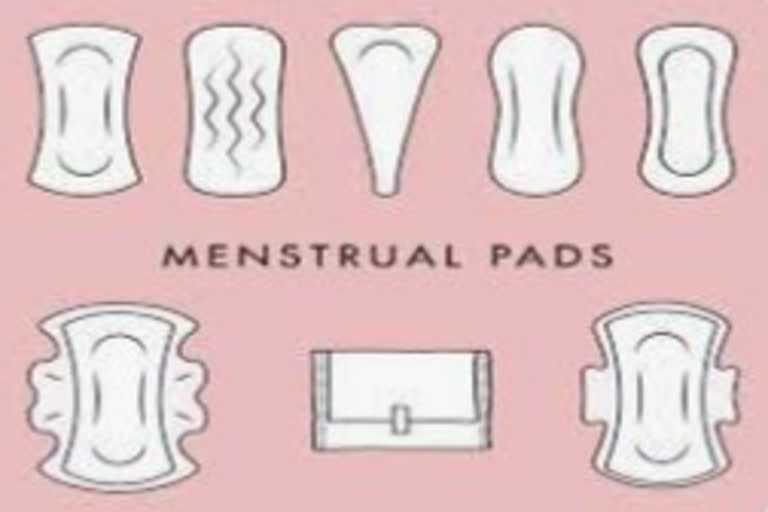Chandannagar (West Bengal): Rural women in many parts of India are still unaware of sanitary pads and menstrual hygiene despite organisations and individuals running awareness campaigns. Concerns remain that absence of menstrual protection is causing illnesses like uterus cancer. Amid this, a hygiene crusader from West Bengal wants sanitary napkins to be given as a ration time through public distribution system (PDS).
A home tutor in Chandannagar, Sumanta Biswas, says the hygiene pads be given at subsidised rates to protect rural women from diseases that may arise for not taking menstrual care. Taking time off his schedule, Biswas has been campaigning on the need for using sanitary napkins to make rural women health conscious.
Biswas has carried out his campaign in villages in Purulia and Sundarbans and also took classes to sensitise rural women. He even distributed sanitary napkins on his own initiative to maids living in the Subhaspally area of Chandannagar and in slums adjacent to Singur for over two and a half years. Biswas wants to make these slums a model.
He made an appeal to the Chief Minister along with the Prime Minister and the Child and Women Protection Department of the Centre. According to him, sanitary napkins should be made available to rural women as part of the mass distribution system (ration shops). Women should be able to use it at a low price. As a result, they will be protected from many diseases.
Also Read: MP man turns 'padman', promotes menstrual hygiene
Extending his awareness campaign, Biswas also conducted menstrual classes for women in schools and villages. However, even though napkin machines have been installed in various schools, they are closed due to a lack of refilling in many places. He took up the issue with Hooghly District Magistrate P Dipap Priya.
Sanitary napkins are being manufactured in Tarakeswar by involving a self-help group. "Also various promotions are going on throughout the year. In future, we will work together with people like Sumanta Babu," the DM said. He also assured to inform the state government to bring these sanitary napkins under the public distribution system of the state.
In 2017, as many as 35 Indian cities were surveyed by the World Health Organization (WHO). It is learnt that 45 percent of women think that there is a social barrier regarding menstruation. A total of 43 percent of Indian girls do not get napkins during menstruation. Although there has been some improvement in the last few years, the problem still remains.
"The use of sanitary napkins is linked to financial status. Women are not proactive. Be it buying in stores and informing family members. I have been working with students for 12 years to create awareness about this disease in society," home tutor Biswas told ETV Bharat. Shubanath Mallik, a local resident, said, "What Sumanta sir is doing is good. Just like the government is giving rice and pulses in the ration, women will be free from diseases if the use of napkins increases."



